︎

Sébastien Miroudot
OECD
Sébastien Miroudot is Senior Trade Policy Analyst at the OECD Trade and Agriculture Directorate, and holds a PhD in International Economics from SciencesPo Paris. Before joining the OECD, he worked for several years at Groupe d’ Economie Mondiale. His research interests include global value chains, the relationship between trade and investment and the role of multinational enterprises and services in international trade and global value chains.
MORE ABOUT SéBASTIEN MIROUDOT >Jan 1, 2018
Marcel P Timmer, Sébastien Miroudot, Gaaitzen J de Vries
Functional specialisation in trade
Production processes are fragmenting across borders with countries trading tasks rather than products. Export statistics based on value added reveal a process of vertical specialisation. Yet, what do countries do when exporting? In this article, we provide novel evidence on functional specialisation...
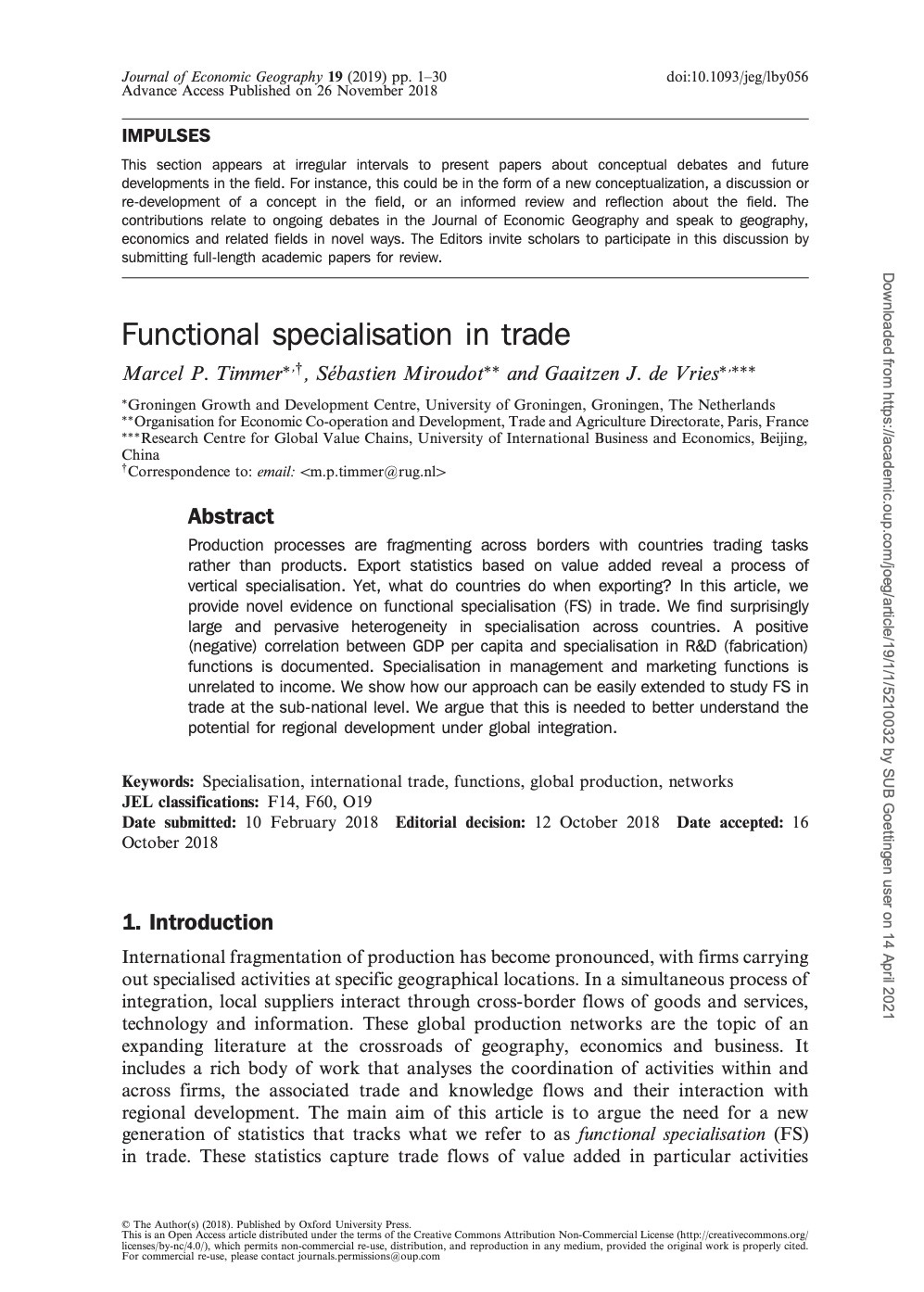
Jan 1, 2020
Sébastien Miroudot
Reshaping the policy debate on the implications of COVID-19 for global supply chains
Disruptions in global supply chains in the context of the COVID-19 pandemic have re-opened the debate on the vulnerabilities associated with production in complex international production networks. To build resilience in supply chains, several authors suggest making them shorter, more domestic, and ...
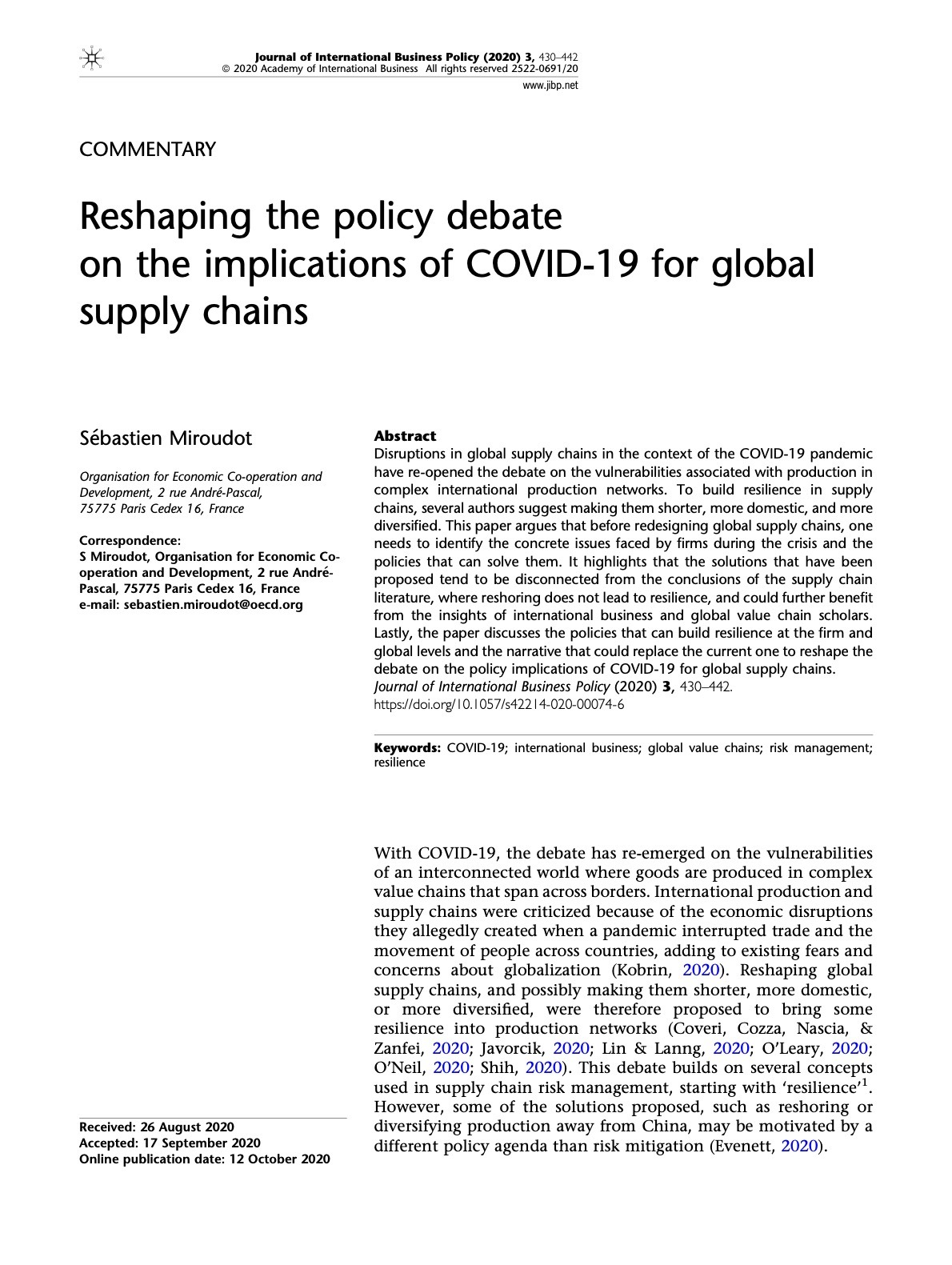
Jan 1, 2018
Andrea Andrenelli, Charles Cadestin, Koen De Backer, Sébastien Miroudot, Davide Rigoi, Ming Ye
Multinational production and trade in services
Using the OECD analytical AMNE database, this paper provides new evidence on the services activities of multinational enterprises (MNEs) and discusses the relationship between cross-border trade in services and the production of services through foreign affiliates (“mode 3” trade in services in ...
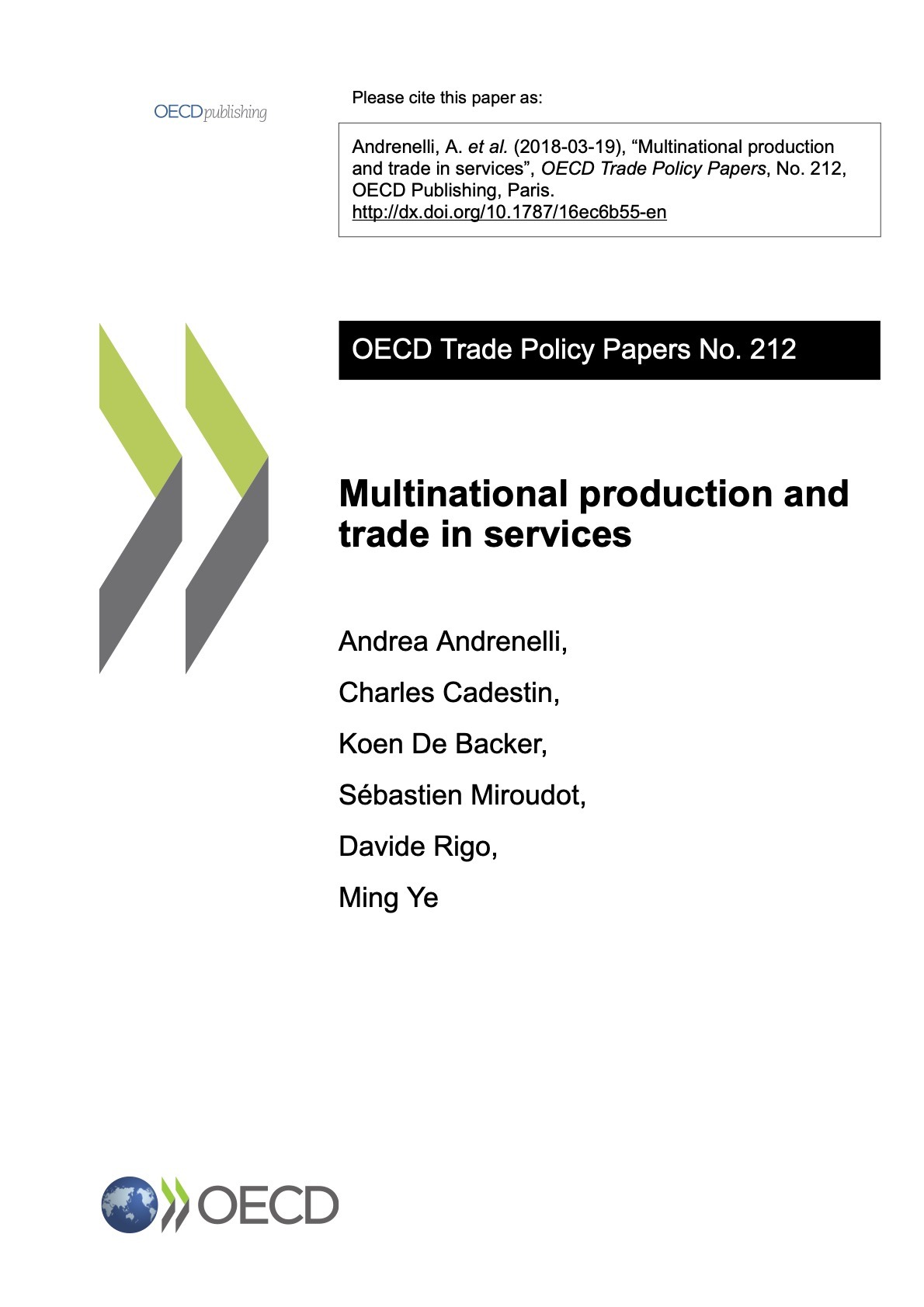
Jan 1, 2020
Sébastien Miroudot, Håkan Nordström
Made in the World? Global Value Chains in the Midst of Rising Protectionism
In the last decade, the concept of ‘global value chain’ (GVC) has become popular to describe the way firms fragment production into different stages that are located in different economies. However, recent evidence indicates that there are lower levels of fragmentation of production. Some author...
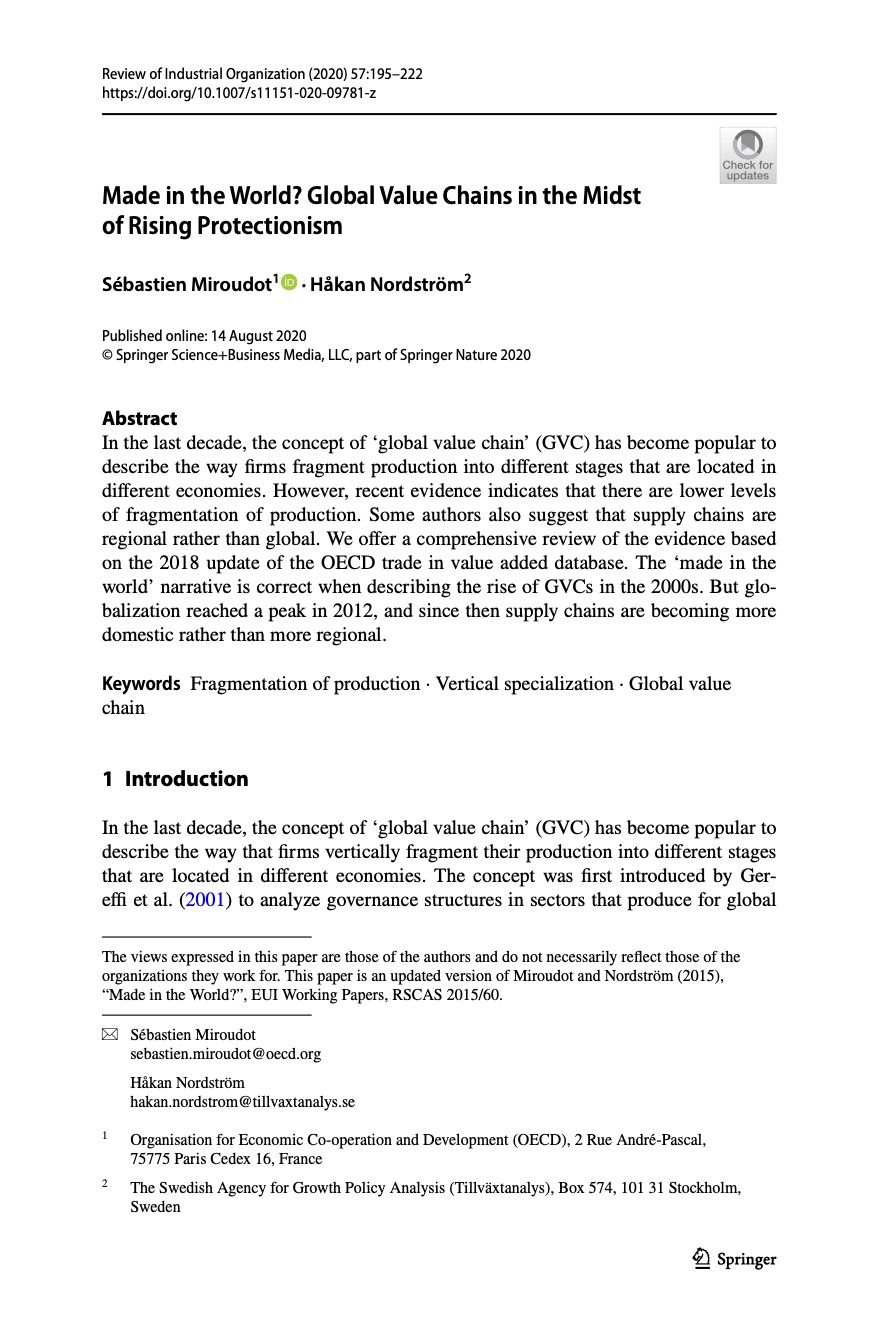
Mar 15, 2024
Bublu Thakur‑Weigold and Sébastien Miroudot
Supply chain myths in the resilience and deglobalization narrative: consequences for policy
The economic disruptions experienced during the COVID-19 pandemic and Russia’s invasion of Ukraine have generated a narrative of resilience and deglobalization that brings the old world order into question. Heightened public attention on perceived supply chain failures has exerted pressure on gove...
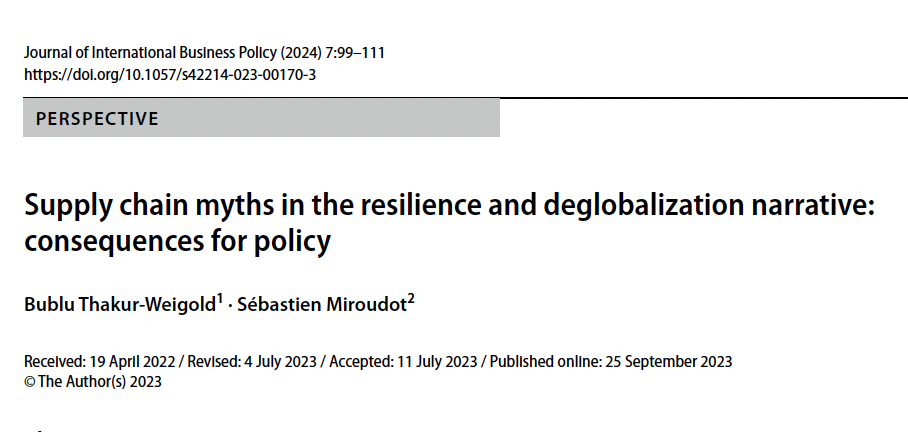
Mar 15, 2024
Sasidaran Gopalan, Sébastien Miroudot, Ketan Reddy
Global value chains and firm survivability during the COVID-19 pandemic: digitalization as the moderator?
Firms participating in global value chains (GVCs) were not only exposed to significant shocks during the COVID-19 pandemic but also turned out to be more resilient. Leveraging a large cross-country firm-level dataset from the World Bank Enterprise Surveys (WBES) and COVID-19 Follow-Up Enterprise Sur...

